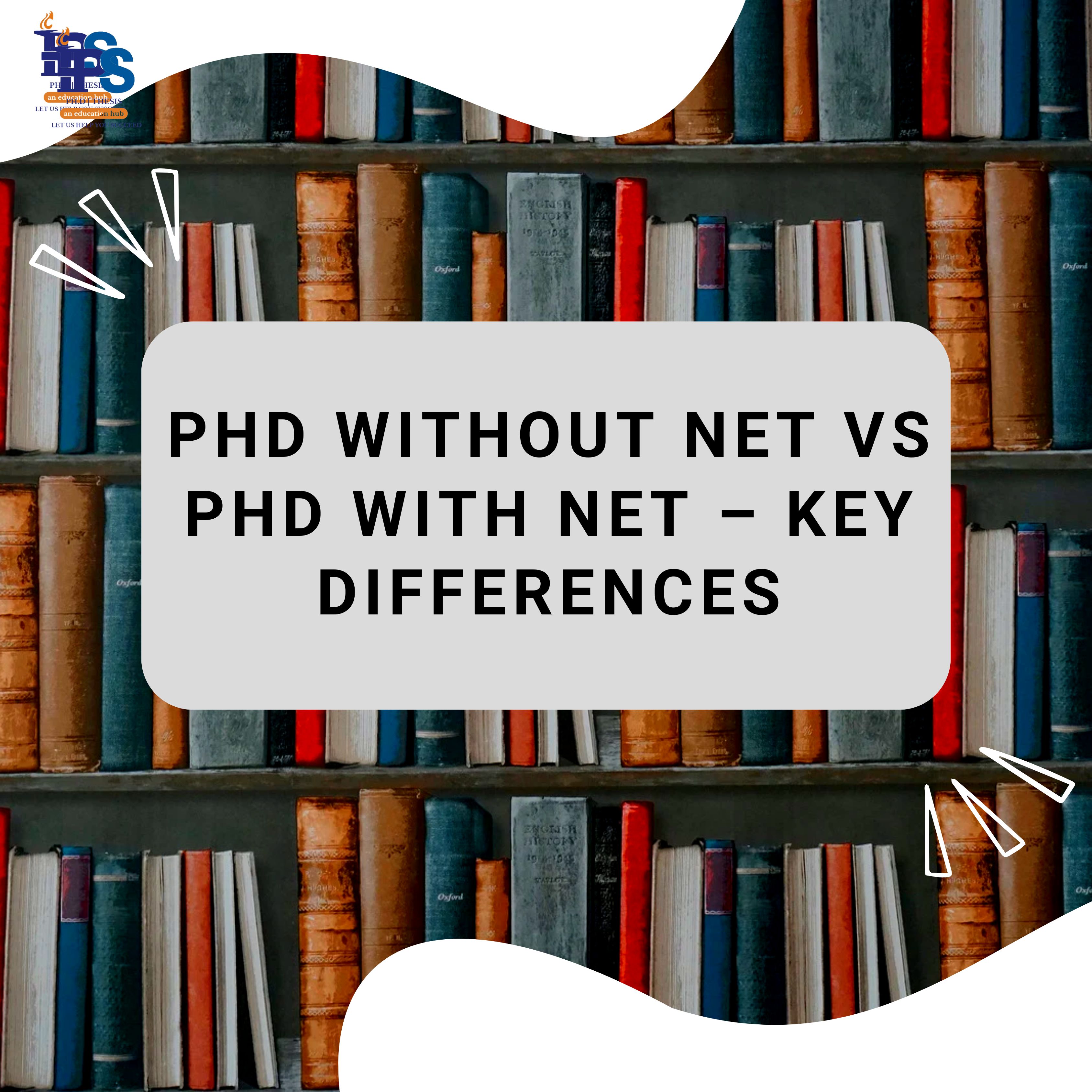
PhD Without NET vs PhD With NET – Key Differences
This raises an important question among aspirants regarding whether they should qualify for the National Eligibility Test (NET) or are eligible for PhD admission without NET. A student who is looking to get into any of the doctoral programs in India must be well-versed with the primary differences between a PhD without NET and a PhD with NET. Ultimately, both paths lead to a PhD but the admissions process, funding, and career outcomes are strikingly different. PhD Without NET vs PhD With NET – Key Differences helps students explore options such as Direct PhD Admission without NET.
Understanding a PhD With NET Qualification?
University Grants Commission (UGC) conducts the National Eligibility Test (NET) for assistant professorship and Junior Research Fellowship (JRF) in Indian universities and colleges. Qualified NET candidates are eligible for PhD programmes in government and private universities, along with scholarships and research grants as an added benefit.
Advantages of a PhD With NET?
- Scholarship & Funding: The NET qualifications, particularly JRF, provide candidates with a monthly stipend (up to INR 35,000) to cover all tuition and research-related expenses.
- Benefit in University Admissions: PhD admission in many reputed universities is given to NET-qualified candidates.
- Graduate Courses: NET also acts as an eligibility criteria for qualifying for graduate-level courses.
- Government Jobs: Candidates with a PhD and NET qualifications are more likely to get a job in various government higher education and research institutes.
PhD Without NET: Eligibility and Possibilities?
PhD Admission Without NET: Several Indian universities provide the opportunity for candidates to seek PhD admission (without NET) either along with entrance exams or through a direct admission process. A few institutions (mainly private universities) take into account additional eligibility criteria, including work experience, past academic performance, and interview performance.
Benefits of a PhD Without NET?
- Direct Admission: Universities may have their specialised entrance exams, and applicants may qualify with their postgraduate scores.
- Flexibility in Research Domains: PhD universities without a NET grant have greater freedom in choosing research areas and approaches.
- No NET Required: As a result, researchers working in industries can engage in industry-oriented research opportunities by signing up for a PhD without NET while working there, thereby marking the peak of their careers.
- No Age Limit: A PhD without NET does not have any age limit, and this opens the doors for working professionals and senior researchers to apply, while NET JRF has an upper age limit.
Key Differences Between a PhD With NET and a PhD Without NET?
|
Criteria |
Ph.D. With NET |
PhD Without NET |
|
Admission Process |
Requires NET/JRF qualification |
University entrance exam or direct admission |
|
Funding |
Eligible for UGC-JRF stipend |
Self-funded or university-specific scholarships |
|
Career in Academia |
Higher preference for faculty positions |
May require additional qualifications or experience |
|
Research Opportunities |
Government-funded projects |
Industry-sponsored or independent research |
|
Job Opportunities |
Preferably for university lecturer roles |
Suitable for corporate research, consultancy, or private institutions |
Which Choice Is Best for You?
PhD without NET vs PhD with NET, which one to choose? NTA NET is extremely advantageous if you wish to get associated with top universities on government funds. But in case you want to do industry-oriented research or wish to follow a more flexible admission path, a PhD without NET will serve you well.
How IPS Edu Hub Can Help You?
At IPS Edu Hub, we provide expert guidance for PhD admissions, whether with or without NET. Our services include:
- Assistance in selecting the best universities for a PhD without NET.
- Support in preparing for university entrance exams.
- Expert mentorship for research proposal writing.
- Guidance for industry-sponsored PhD opportunities.
For personalised PhD admission support, visit IPS Edu Hub and take the first step towards your doctoral journey today!





